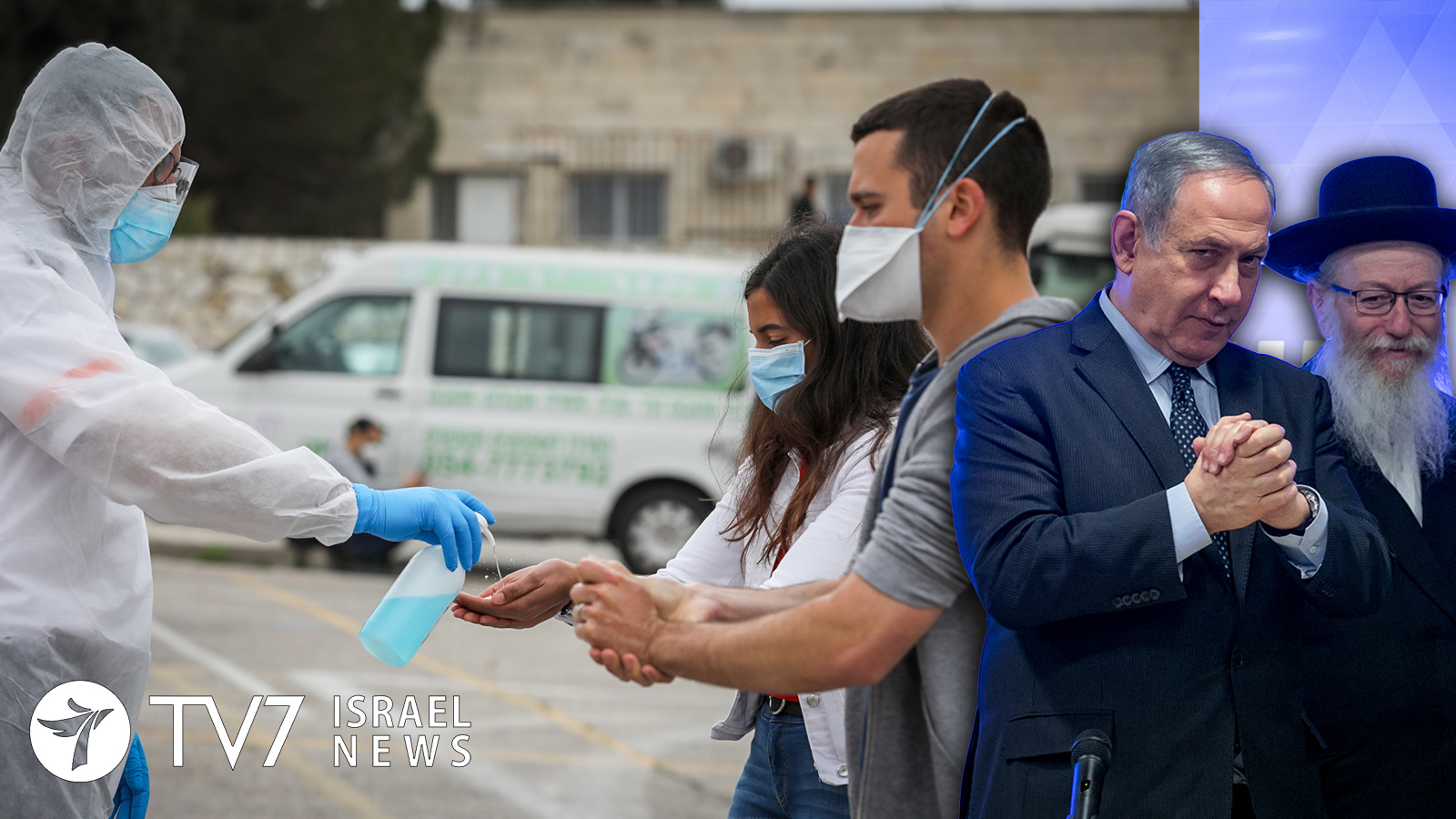Israel is further ratcheting-up efforts to diminish contagion of the coronavirus. After unveiling a series of new measures just one day prior, Prime Minister Benjamin Netanyahu chaired high-level meeting focused on preparations for dealing with the economic implications of the disease, attended by the Finance, Industry and Economy Ministers, the Governor of the Bank of Israel, Director General of the National Security Council and other senior officials.
Emphasizing that he wanted to start with positive developments, Prime Minister Netanyahu said that Israel is “starting this crisis with a very strong economy” that is in “very good shape.” “The bad news is that nobody knows how this epidemic will spread, where it will go and the economic price that it will exact,” he went on, explaining that “Therefore, we are prepared for what has already happened and for what could happen.”
The Israeli leader continued by declaring a first step to assure the economy can withstand the government’s health-related edicts; such as travel restrictions, avoidance of large conventions or conferences and other actions that could impact the financial sector.
Beginning Sunday, 8 March, Israel’s Finance Minister Moshe Kahlon will establish an emergency cash flow assistance fund for businesses deemed as “essential for the functioning of the economy,” said the Premier. This will be followed by a monetary proposal formulated by the Finance Ministry with the Bank of Israel to assist “businesses in distress due to the crisis,” he said. Even though Netanyahu acknowledged that “major challenges” lie ahead, he restated his belief that “we are dealing with this crisis vis-à-vis both health and the economy in the best way.”
Finance Minister Moshe Kahlon affirmed that the main goal “is to allow the economy to function,” including assistance to “medium and small size companies, to secure operational continuity.” After agreeing with the Prime Minister’s assessment that “we enter into this crisis with a strong, stable and firm economy” that he said “will help us – with God’s help – to persevere.”
Bank of Israel Governor Amir Yaron said he wished to highlight that “the financial system is robust, there are no signs dysfunction in the financial markets and the liquidity in the various sectors remains unaffected.”
In related developments, Palestinian Authority Prime Minister Mohammed Shtayyeh declared a state of emergency “to face the danger of coronavirus, and to stop it’s spread.” He called on “responsible parties” to “protect the public’s health and to implement security and safety,” after the confirmation of seven COVID-19 cases of Palestinian employees at Bethlehem’s Angel Hotel. P.A. Health Minister Mai AlKaila said that all the patients have been quarantined at the hotel, along with other personnel and both of the physicians who conducted the tests. She also announced that other “necessary procedures” and “recommendations” have been issued to relevant parties, “depending on the emergency mode in Bethlehem, Jericho and the Jordan Valley.”
Greek Health Minister Sotiris Tsiodras has acknowledged that the infected Palestinians are believed to have been exposed to the virus by a group of Greek guests amid a pilgrimage to religious sites in Jerusalem and Bethlehem, as well as Mount Sinai in Egypt. He further warned that “a significant rise in the number of cases of the virus in (Greece), as well as in the rest of the world” is expected, but noted that “Israel was one of the countries with few cases, and without community spread.”
Israeli Defense Minister Naftali Bennett took swift action to prevent further spread of the coronavirus by imposing an immediate closure on Bethlehem until further notice, forbidding any traffic in or out of the West Bank city.
On a happier note, six Israelis who had tested positive for coronavirus last month have fully recovered and released after a 29 day-quarantine at the Sheba Medical Center of the Tel HaShomer Hospital outside Tel Aviv. 50-year-old Nicole Ben David said she was very excited, and that the patients’ remained in good spirits even though the isolation had been difficult, saying “we laughed a lot and we were very optimistic.”
The Director of the Israel Center for Disaster Medicine and Humanitarian Response at Sheba Medical Center, Professor Elhanan Bar-On, said the facility will now be prepared “for the next stage,” including the possibility of accepting large number of patients who have tested positive, some of whom may be more significantly ill and require far more intensive treatment than the previous patients.
TV7 Israel News has published a direct link to the Israeli Health Ministry coronavirus guidelines in English on our website: www.tv7israelnews.com
